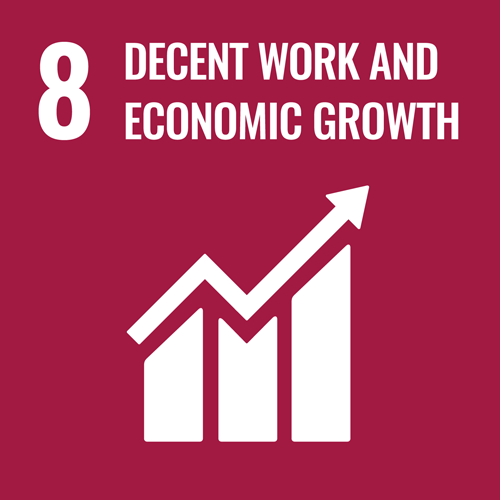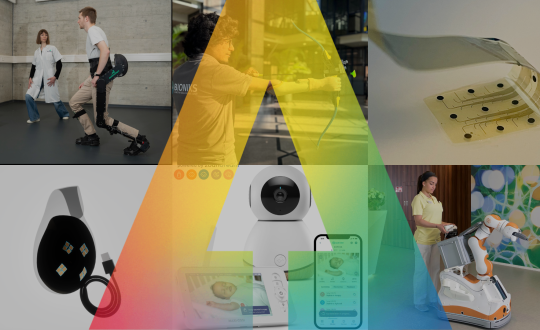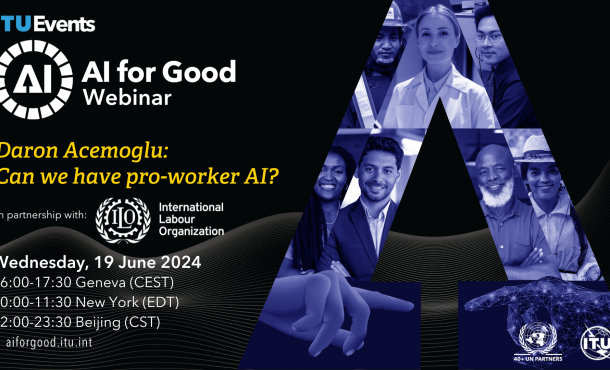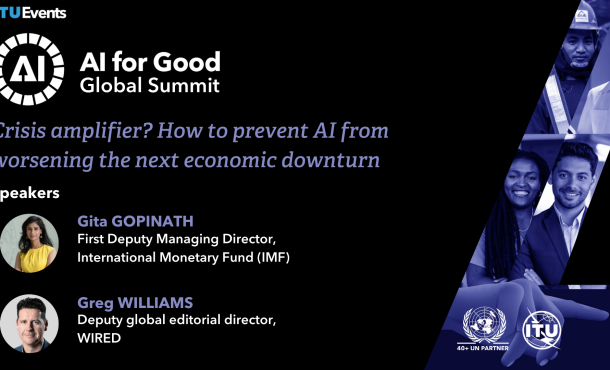AI-powered robots supporting sustainable space exploration

- 10 May 2024
By Anjali Roy, edited by Alena Radziukevich
In recent years, the pace of human space exploration has accelerated at an unprecedented rate, driven by a growing interest in unraveling the mysteries of the cosmos and expanding our understanding of the universe. As we venture further into space, the importance of sustainable practices becomes crucial. This is where the convergence of artificial intelligence (AI) and robotics plays a transformative role. AI-powered robotics not only pave the path for sustainable space exploration but also contribute to advancing the Sustainable Development Goals (SDGs), revolutionizing our approach to exploring the cosmos.During the AI for Good Global Summit 2023, a panel discussion titled “Harnessing AI-Powered Robotics for Sustainable Space Exploration” held together with leading experts from the University of Surrey, Stanford University, DLR Robotics Institute, and Field AI unveiled how AI-powered robotic solutions can help us accelerate sustainable space exploration.
Watch full session here.
Moderated by Vandi Verma, the Deputy Manager for Mobility and Robotics Systems at the NASA Jet Propulsion Laboratory (JPL), this panel discussion delved into strategies for achieving sustainable space exploration with the integration of AI-powered robotics. The conversation emphasized not only the practical applications but also underscored the importance of global collaboration and commercial partnerships in advancing our shared vision for sustainable exploration beyond Earth.
Deep dive into sustainable space design
Marco Pavone, Associate Professor of Aeronautics and Astronautics at Stanford University, shared his insights on the profound impact AI holds in the architecture of robotic systems. Marco emphasized how AI is revolutionizing the design process, enhancing robot performance, and reducing development costs through data-driven approaches. With AI, robots can be trained to complete tasks autonomously, ushering in a new era of efficiency and innovation in space exploration. However, to achieve this, there must be a system in place that can adapt, research and perceive in unprecedented and sustainable ways that can benefit space exploration missions.
“AI allows us to monitor the spacecraft with a level of accuracy that you couldn’t do with traditional methodologies,” highlighted Marco Pavone.
Achieving sustainability in space exploration entails a multifaceted approach that encompasses environmental, operational, financial, and societal considerations. Environmental sustainability is crucial, for example, for mitigating the pollution of orbits caused by increasing satellite deployments, necessitating responsible satellite disposal and debris mitigation strategies. Operational sustainability requires processes and standardization to enable interoperability among diverse stakeholders, including government agencies, private companies, and international partners. Societal sustainability involves equitable resource allocation and a commitment to use space exploration for the benefit of humanity. By embracing responsible practices, fostering collaboration, and leveraging innovative funding models, the path to a sustainable future in space exploration is paved, guided by principles of stewardship, inclusivity, and long-term vision.
Challenges and innovation in AI, robotics, and sustainable space missions
According to Yang Gao, Professor of Space Autonomous Systems and Head of STAR LAB at the University of Surrey, forward-looking approaches are essential for the success of space missions.
Traditionally, space missions have been characterized by fixed and limited designs, but Professor Gao envisioned a future where space systems are built sustainably to support long-term human presence in space. This requires robust mobility, autonomous capabilities, and sustainable design principles to ensure the longevity of space infrastructure.
In the vast expanse of space exploration, the journey from launching spacecraft to its operation in orbit encompasses a spectrum of activities, each with its own sustainability challenges and opportunities. During the initial launch phase, sustainable practices are increasingly integrated into the operational life cycle of satellites and spacecraft. Moreover, the concept of recycling in space, involving the capture, removal, and repurposing of defunct satellites and debris, is gaining traction as a crucial component of sustainable space operations. AI powered robotics can assist in this through innovative approaches such as on-orbit servicing, enabling repairs and maintenance to be conducted remotely, thus extending the lifespan of assets and minimizing the accumulation of space debris.
However, as the number of satellites and rockets launched into space continues to escalate, the volume of data generated presents a significant challenge for traditional analytical methods.
Ali Agha, CEO and Co-Founder of Field AI, underscored the pivotal role AI holds to revolutionize data analysis, trend extraction, and decision-making processes in space exploration, Different AI models can not only predict data but also assess the trends and analyze them from massive numbers of satellites. Moreover, the augmentation of autonomous functionalities in space robots promises enhanced sustainability, cost-efficiency, and resource management. AI’s adaptability over time enables the correlation of observations, responsive adjustments to changing conditions, and refinement of control mechanisms, thereby laying the groundwork for more sustainable and efficient space exploration endeavors.
“AI is a family of technologies that is contributing to different stages of a space mission. It ranges from computing like machine learning, all the way to involving AI in the embodiment of the hardware design,” noted Yang Gao.

Fostering a global vision for sustainable space exploration
Underscoring the importance of commercial partnerships in driving sustainable space exploration, the emphasis is placed on the critical role played by commercial partners in environmental monitoring and long-term habitat viability on other planets. By leveraging AI solutions, these partners can contribute to building sustainable infrastructure on other planets, paving the way for extended human presence in space.
Firstly, environmental monitoring, facilitated by Earth observing satellites, plays a critical role in understanding climate change and ecological shifts. Here, partnerships between space agencies and commercial entities are pivotal, as they leverage infrastructure and expertise to analyze vast datasets.
Secondly, the quest for long-term sustainability beyond Earth necessitates innovative solutions. Commercial partners must harness AI technologies to construct sustainable habitats on other planets, ensuring our viability in extraterrestrial environments. The involvement of commercial partners also underscores the need for cooperation between private companies and various sectors, ensuring a unified approach to the challenges and opportunities that lie ahead. Concurrently, investment in education and workforce training is crucial to sustain the space sector and inspire future generations.
According to Armin Wedler, Head of the planetary exploration domain from DLR Robotics Institute, it is essential to foster communication, collaboration, and legal regulations creation among nations for encouraging and supporting the global discourse that upholds ethical practices.
“I am very positive in looking for such a future as humanity is working together to build an interesting and future oriented infrastructure,” said Armin Wedler.
Looking ahead, this panel discussion explored the potential AI-powered robotics hold to accelerate sustainable space exploration. By harnessing the power of AI-driven robotics, humanity can unlock new frontiers, expand our understanding of the universe, and pave the way for a sustainable future in space. As we embark on the journey that pushes the boundaries of human exploration, collaboration, innovation, and forward-thinking leadership become the principles essential to realizing our vision for the future of space exploration.















